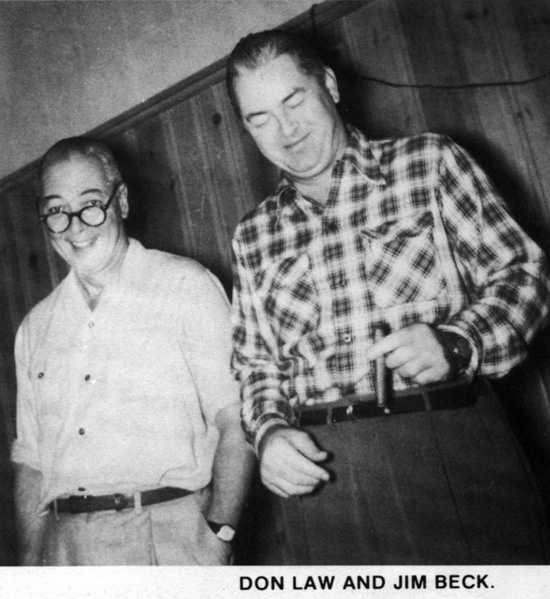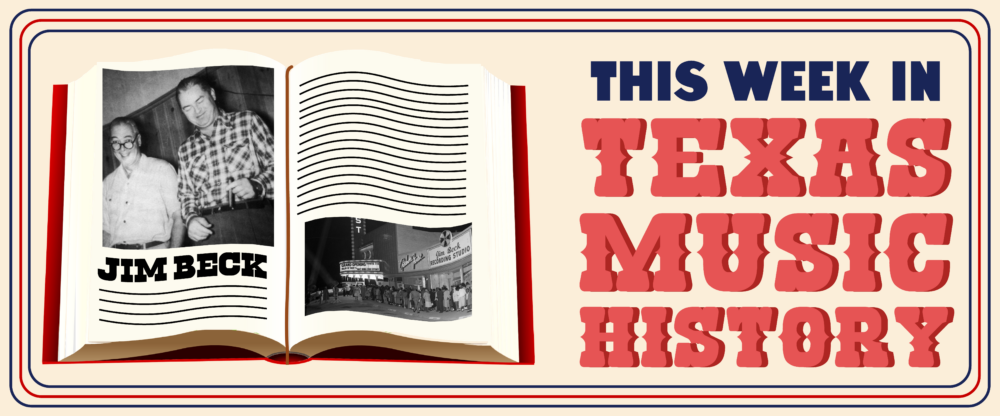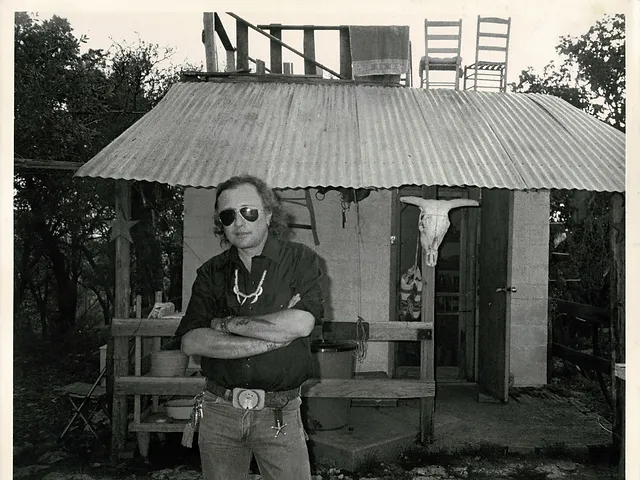by Jason Mellard / Center for Texas Music History at Texas State

On May 3, 1956, recording engineer Jim Beck died from unlikely injuries sustained doing what he loved, making excellent records in his Dallas studio. Beck had been cleaning audio equipment with a toxic chemical and forgot to ventilate the room, a tragic accident that may have changed the course of country music history.
Born in Marshall and raised in Fort Worth, Beck took an early interest in sound technologies. He constructed a functioning radio station in his bedroom at age fourteen. His skills developed in the army during WWII, after which he settled in Dallas and built a recording studio. It quickly drew national attention for Beck’s use of cutting-edge technology to produce clean, clear records. His notoriety increased when he showed an instinct for spotting talent, too, recording the first singles of honky-tonk pioneers Ray Price and Lefty Frizzell.
Beck’s Ross Avenue studios attracted Fats Domino, Roy Orbison, and Marty Robbins, among others. Norman Petty, the studio maestro who would launch Buddy Holly’s career, started out as a recording engineer under Beck’s tutelage. By the mid-1950s, Columbia and Decca Records seriously considered moving their country recording operations to Dallas. But with Beck’s exit, his studio passed from the scene as well. It was Nashville, rather than Beck’s Dallas, that kept the crown of Music City.



